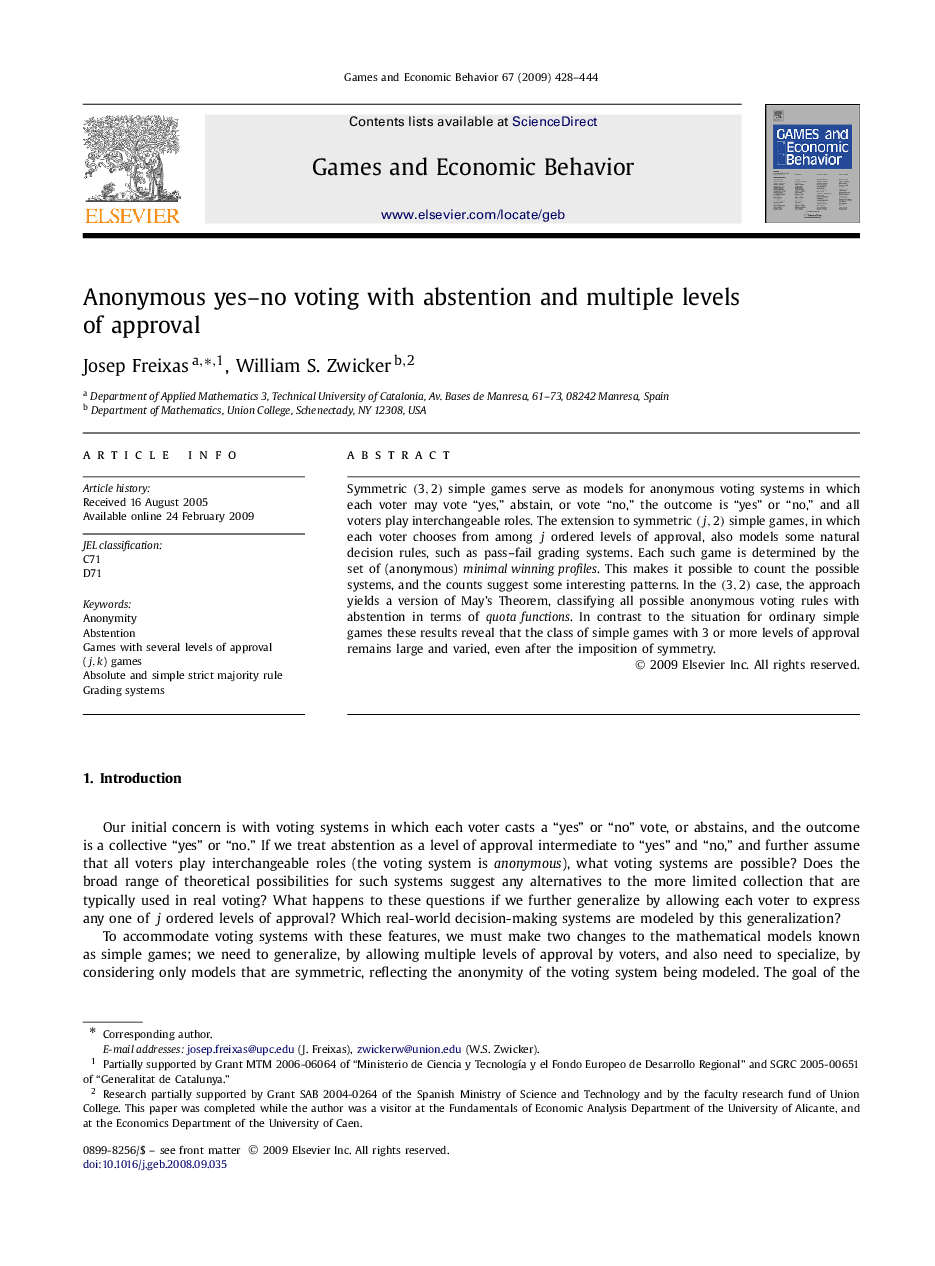| Article ID | Journal | Published Year | Pages | File Type |
|---|---|---|---|---|
| 5072744 | Games and Economic Behavior | 2009 | 17 Pages |
Symmetric (3,2) simple games serve as models for anonymous voting systems in which each voter may vote “yes,” abstain, or vote “no,” the outcome is “yes” or “no,” and all voters play interchangeable roles. The extension to symmetric (j,2) simple games, in which each voter chooses from among j ordered levels of approval, also models some natural decision rules, such as pass-fail grading systems. Each such game is determined by the set of (anonymous) minimal winning profiles. This makes it possible to count the possible systems, and the counts suggest some interesting patterns. In the (3,2) case, the approach yields a version of May's Theorem, classifying all possible anonymous voting rules with abstention in terms of quota functions. In contrast to the situation for ordinary simple games these results reveal that the class of simple games with 3 or more levels of approval remains large and varied, even after the imposition of symmetry.
